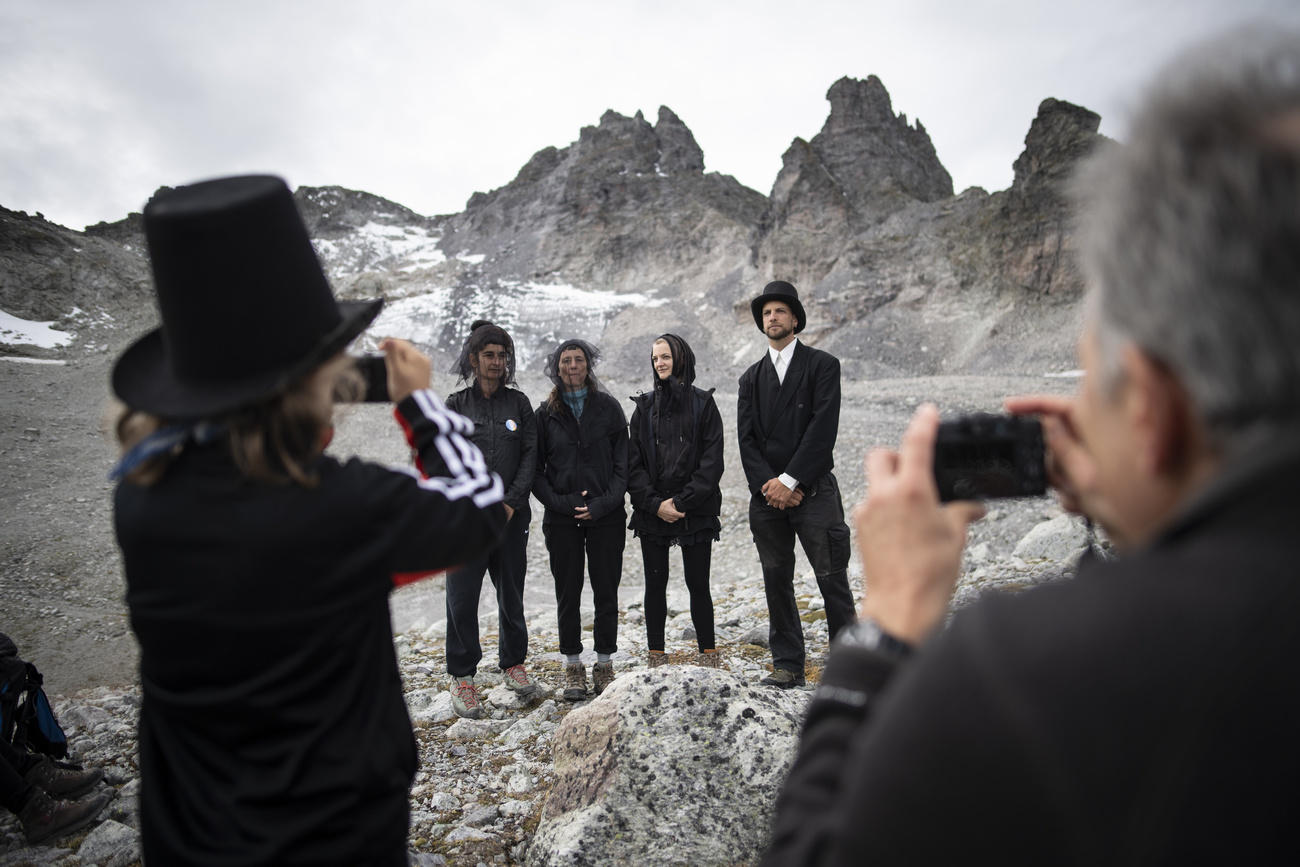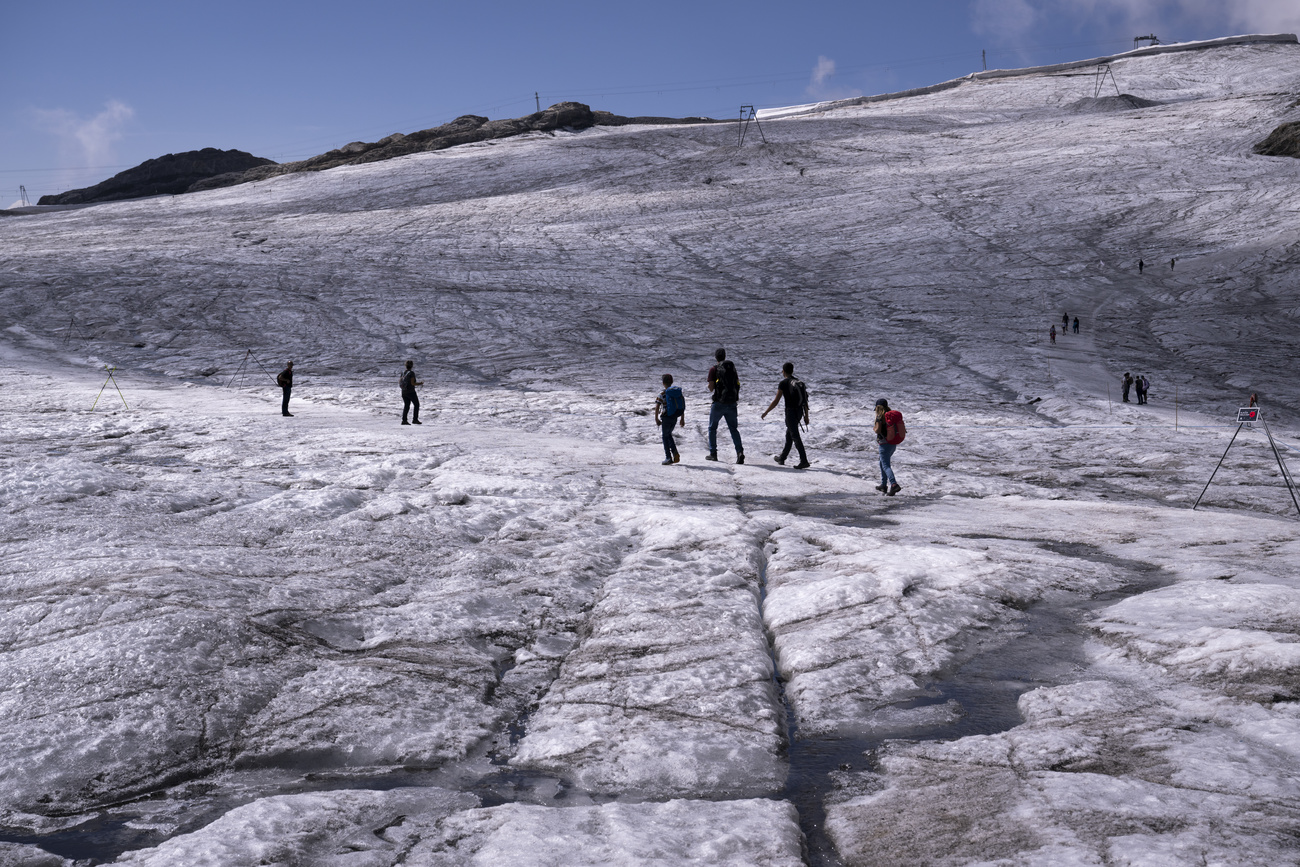
Heatwave led to unprecedented melt of Swiss glaciers

Switzerland’s glaciers are melting like never before, an academic study released on Wednesday shows, with their ice volume declining by 6% in a “disastrous” 2022 amid rising concerns about global warming and a summer heatwave that swept across Europe.
The Swiss Academy of Sciences reports that the shrinkage of ice in glaciers in Switzerland – which has the greatest volume of glaciers of any country in Europe – has topped a previous record retreat nearly a generation ago.
“2022 was a disastrous year for Swiss glaciers: all ice melt records were smashed by the great dearth of snow in winter and continuous heatwaves in summer,” the academy said in a statement, basing its report on data collected by Glamos, the Swiss glacier monitoring network.
The report chronicles in detail the damage across the Swiss Alps. Over six metres of ice melted this year on the Konkordiaplatz summit in the Great Aletsch Glacier in the south, near the Italian border. Small glaciers like Pizol in the east near Liechtenstein, Vadret dal Corvatsch near St Moritz in the southeast, and Schwarzbachfirn in central Switzerland have “practically disappeared”, the team said.

More
Vanishing Swiss glacier gets its own funeral procession
‘Perfect storm’
Switzerland faced what might be considered a perfect storm this year that led to the big melt. Snow cover in the Swiss Alps was exceptionally light this year – particularly in the southeast – meaning that the glaciers had less natural protection from the heat. Plus, a dust drift from the Sahara that blanketed many parts of Europe in the spring contaminated the snow, causing it to absorb more solar heat. Then, a spike in summer heat swept across Europe, intensifying the pressure.

More
Alpine glaciers fall victim to Europe’s warming climate
Switzerland is not alone. The Bavarian Academy of Sciences in Germany said the ice sheet on the Southern Schneeferner in the Alps had melted so much this summer that it could no longer be considered a glacier, leaving Germany now with only four glaciers.
The findings come on top of another study released last month showing that Switzerland’s 1,400 glaciers have lost more than half their total volume since the early 1930s.

More
Heatwave led to unprecedented melt of Swiss glaciers

In compliance with the JTI standards
More: SWI swissinfo.ch certified by the Journalism Trust Initiative


























You can find an overview of ongoing debates with our journalists here . Please join us!
If you want to start a conversation about a topic raised in this article or want to report factual errors, email us at english@swissinfo.ch.